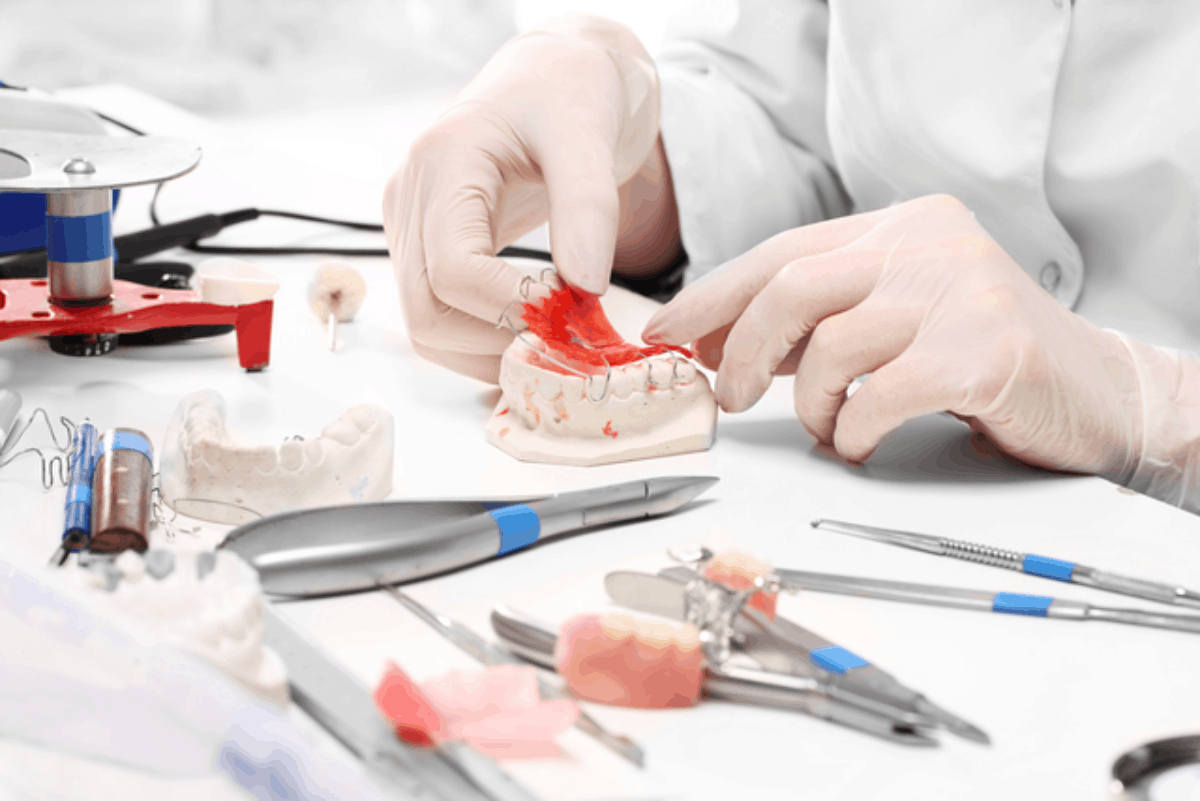Dentures come in two main types: partial and complete. Partial dentures are appropriate if you’re missing only some teeth in one or both jaws. Complete dentures provide full sets of artificial teeth for one or both jaws without any natural teeth. Both types of dentures are custom-crafted for your jaw. The base and teeth will be tinted to blend naturally and subtly with your appearance.
Both partial and complete dentures make it possible to eat and speak naturally. They also restore structure behind your lips and cheeks that was lost upon the loss of your teeth. That loss of structure can cause a sunken appearance in your face and appear to age you prematurely. Dentures reverse that sunken look and restore your youthful appearance.
The initial adjustment to dentures near you
You may have become quite accustomed to life without teeth. Transitioning to a full set of teeth again will take some getting used to. The simple physical presence of the dentures in your mouth will feel very different for a short while. What will you notice at the outset?
- You’ll experience an increased amount of saliva in your mouth
- It will feel as if your dentures are loose or too large
- You may experience some gum irritation and soreness due to the pressure placed on your gums
All of those initial sensations are normal and temporary. Sensations like that, which gradually ease over time, should not alarm you. If, on the other hand, those sensations do not improve or are more significant than you expected, don’t hesitate to contact your periodontist in Los Angeles to confirm all is as it should be.
Even after you’ve adjusted to your dentures fully, and they’ve become completely natural in every way, you will still meet with your periodontist annually. At those annual examinations, your periodontist will inspect your gums and jaw and examine your dentures closely. If any fit or function issues arise, your periodontist will make all necessary adjustments on an ongoing basis.
When should my dentures be replaced?
No individual set of dentures lasts forever simply because your gums and jaw do not remain precisely the same in size and shape over time. At the same time, the materials from which your dentures are made can also gradually become worn. That combination of changes to your gums and jaw, and the wearing of the materials, will gradually undermine the comfort, fit, and function of your dentures. Adjustments on an ongoing basis maintain the dentures for five to seven years at a time, but they should be replaced based on new impressions every seven years or so.
What are the benefits of dentures in Los Angeles?
Dentures are one of many options your periodontist in Los Angeles can offer to solve your tooth loss. Each of those options offers advantages and comes with certain disadvantages that may recommend one option or another. Dentures provide three primary benefits compared to a life without some or all teeth.
- Tooth loss forces you to make sacrifices and imposes losses on you involving eating and speaking, and even quality of life factors such as smiling, laughing, and even singing. Dentures can restore your full function and quality of life.
- Amongst all of the options for resolving permanent tooth loss, dentures are usually the most cost-effective option, although the required investment will vary depending on your personal circumstances.
- With careful attention to care instructions that your dentist will provide, dentures in Los Angeles can last for up to a decade (although they do commonly need to be replaced after five to seven years).
Which option for resolving your tooth loss is best for you? The easiest way to answer that question may be to approach the issue after a complete assessment by visiting your periodontist in Los Angeles. After examining your teeth (if any) jaws, gums and reviewing your medical and dental health, their staff will recommend the best solutions and answer any questions you have about dentures near you and how to proceed.
